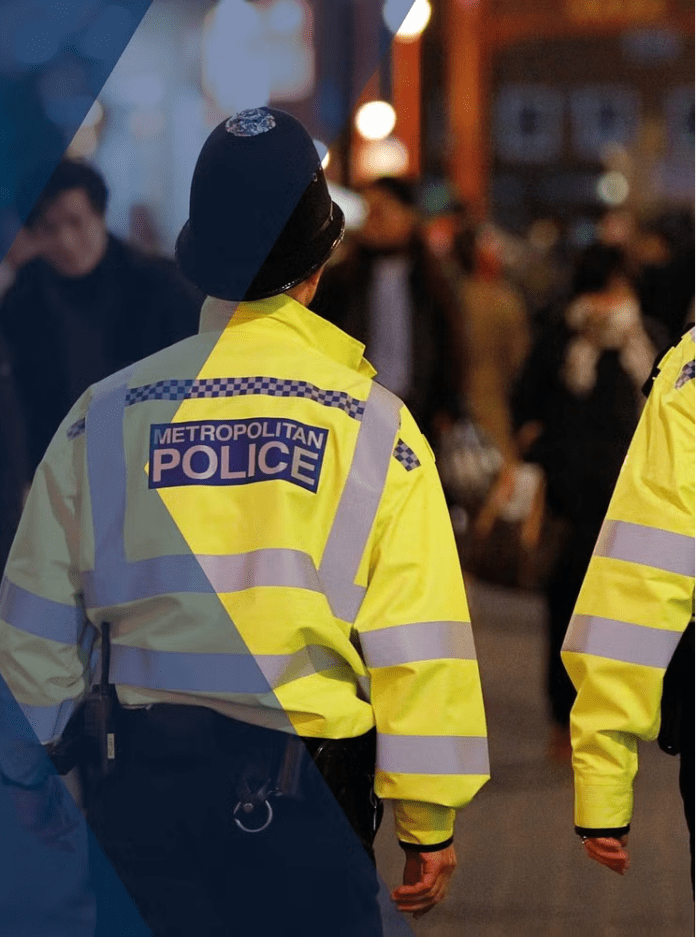An officer has been dismissed after a misconduct hearing found he sent and received offensive WhatsApp messages over a number of years.
An independent panel, led by a senior police officer and including another legally qualified member with experience chairing misconduct hearings, found the case against Inspector Charles Ehikioya proven following a misconduct hearing that concluded on 10 January.
The panel heard that between 2017 and 2020, Ehikioya was in a WhatsApp conversation with a police constable who has since been dismissed for a separate matter. During the course of their conversation, Ehikioya sent a significant number of videos, images, memes and messages of an inappropriate nature. Many were pornographic, included scenes of violence, or were misogynistic.
Ehikioya received similar messages from the former officer, but at no point did he ever appropriately challenge the behaviour. When he did express concern, it was primarily in the context of being caught.
In a message sent in April 2019, Ehikioya wrote: “Yo, you need to stop sending or receiving these silly porns, before you get into trouble with work. Because someone you know or don’t know might decide to shop you brov… I have seen and read lately people getting shopped by others. I am sure you have seen what was written in the front page of intranet last week about social media postings that includes during and off duty! There’s even reference to WhatsApp messages shared… Be warned brov.”
The conversation first came to light when, in December 2020, a phone was seized following an allegation by a PCSO about the behaviour of another officer. That officer was not Ehikioya and there is no suggestion that he was in any way involved in the offending being looked at by that investigation.
Officers downloaded the contents of the phone and found a WhatsApp conversation, the contents of which was concerning enough to prompt further enquiries. While Ehikioya’s identity was not initially known, a check on the other number sending and receiving messages as part of the conversation revealed that he was the owner of the phone it was linked to.
An investigation was launched by the Met’s Directorate of Professional Standards. They referred the matter to the Independent Office for Police Conduct who decided it was suitable for the Met to investigate locally.
As part of that investigation, a file of evidence was passed to the Crown Prosecution Service who determined that it did not meet the criminal threshold.
At the end of June 2024, Ehikioya was formally notified of the Met’s intention to hold a misconduct hearing, leading to the proceedings that have taken place over the past week and the outcome above.
Prior to the hearing, he provided details of the argument he would use in his defence including a claim that he had never sent or received the messages in question and that they had been fabricated to frame him.
This prompted a further review of the data that had been extracted from his device, during which specialist officers were able to retrieve thumbnails of some of the images that Ehikioya claimed he had never sent or received.
During the hearing he was unable to explain how these thumbnails came to be on his device. He was also unable to explain why there would have been messages in the WhatsApp chat containing information he would know such as details about his relatives if he hadn’t been the one sending the messages.
The panel found that Ehikioya’s argument, that the messages exchanged had been fabricated, was not credible or supported by the evidence. They were described as fanciful, far-fetched and totally implausible.
Delivering the outcome, panel chair Commander Jason Prins said, “Inspector Ehikioya’s actions were intentional and deliberate.
“He would have undoubtedly been aware that the views that he apparently held and expressed were totally contrary to the principles and policies of the Metropolitan Police and ethos of a modern police service.
“He would have been aware that those views, if they became known, would have caused harm and had a significant negative impact on public confidence in the Met, and damaged the reputation thereof.”
Prins added, “The public would be shocked and appalled to find that a serving officer could hold and express such harmful, detrimental, discriminatory and derogatory views and opinions.
“The panel has found that Inspector Ehikioya both sent, received and responded to discriminatory messages. He also failed to challenge or report messages sent to him and therefore tacitly approved discriminatory acts of another. His actions are therefore considered to be of an extremely serious nature for which he is highly culpable.
“The panel find that the appropriate and proportionate section in this case is dismissal without notice.”
There has been quite a lot of commentary about this case both within and outside policing, including claims that it was in some way a racially motivated investigation, according to the police.
“We are confident that this was not a case where disproportionality was a factor and we note the panel also found nothing in the evidence to support those arguments. However, we know that the presence of discrimination in the misconduct system more broadly remains a real concern for officers and staff, particularly those from Black or other minority ethnic heritage backgrounds.
“We are delivering significant reforms of the misconduct system specifically intended to address those legitimate concerns and that work continues,” a police statement said.




